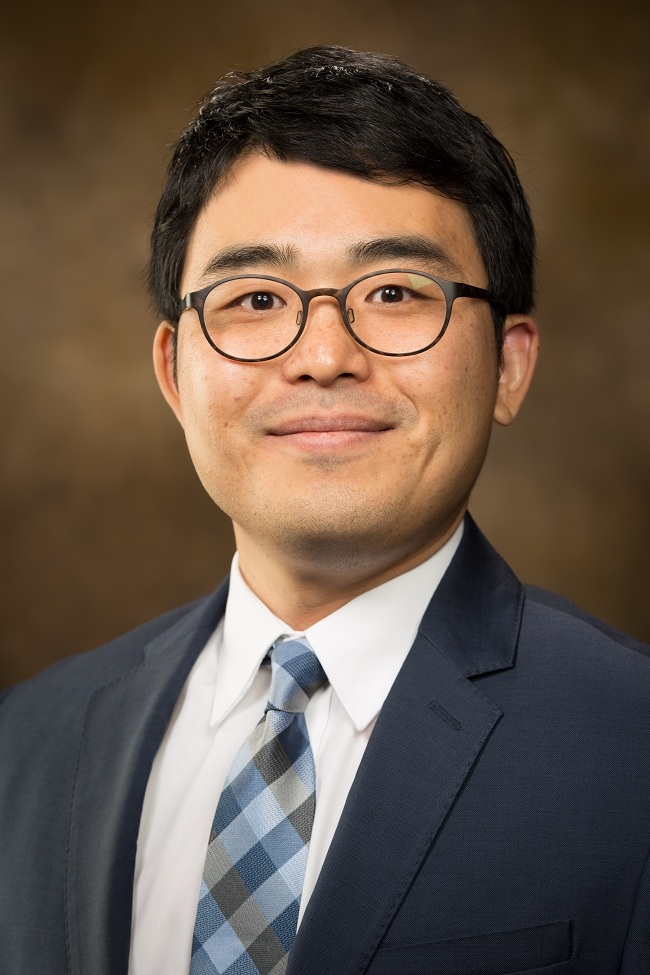Breast Cancer Awareness Month: Risk Factors and Protective Steps

Jae Kyeom Kim is assistant professor of human nutrition in Bumpers College's School of Human Environmental Sciences.
FAYETTEVILLE, Ark. – October is National Breast Cancer Awareness Month and Jae Kyeom Kim, U of A assistant professor of human nutrition in the Dale Bumpers College of Agricultural, Food and Life Science's School of Human Environmental Sciences, has compiled lists of risk factors and protective measures to increase awareness and safety.
According to the National Institute of Cancer, breast cancer is defined as "a disease in which malignant (cancer) cells form in the tissues of the breast."
Although it is rare, men can develop breast cancer. In the U.S., breast cancer is the second most common type of cancer in women. Approximately one in eight will develop invasive breast cancer over the course of their lifetime. As of 2017, more than 252,000 new cases of invasive breast cancer were expected to be diagnosed in women in the U.S., according to the Breast Cancer Organization.
"As expected, certain gene mutations (BRCA1 and BRCA2) that are inherited from parents can increase risk of breast cancer, but it is estimated about 85 percent of breast cancer occurs in women who do not have family history of the disease, emphasizing the importance of prevention via healthy lifestyle (e.g., diet and exercise)," said Kim.
Risks increasing the chance of developing breast cancer:
- Age
- Personal history of breast cancer or non-cancer breast disease
- Inherited risk of breast cancer
- Dense breasts
- Exposure of breasts to estrogen made in the body
- Taking hormone therapy for menopause symptoms
- Radiation therapy to the breast
- Obesity and drinking alcohol
Protective measure decreasing the chances of developing breast cancer:
- Less exposure of breast tissue to estrogen made by the body
- Taking estrogen-only hormone therapy after hysterectomy, selective estrogen receptor modulators or aromatase inhibitors and inactivators
- Risk-reducing mastectomy
- Ovarian ablation
- Getting enough exercise
"Increasing protective factors and avoiding risk factors may help prevent cancers," said Kim. "Limiting alcohol intake, managing body weight and getting enough exercise can reduce the risk."
The NCI Breast Cancer Risk Assessment Tool, designed to be used by healthcare providers, helps women estimate the risk for breast cancer over the next five years. Your doctor can provide more information. For nutritional information, faculty members in human nutrition are available to offer advice on better and healthy food choices.
About the Dale Bumpers College of Agricultural, Food and Life Sciences: Bumpers College provides life-changing opportunities to position and prepare graduates who will be leaders in the businesses associated with foods, family, the environment, agriculture, sustainability and human quality of life; and who will be first-choice candidates of employers looking for leaders, innovators, policy makers and entrepreneurs. The college is named for Dale Bumpers, former Arkansas governor and longtime U.S. senator who made the state prominent in national and international agriculture.
About the University of Arkansas: The University of Arkansas provides an internationally competitive education for undergraduate and graduate students in more than 200 academic programs. The university contributes new knowledge, economic development, basic and applied research, and creative activity while also providing service to academic and professional disciplines. The Carnegie Foundation classifies the University of Arkansas among only 2 percent of universities in America that have the highest level of research activity. U.S. News & World Report ranks the University of Arkansas among its top American public research universities. Founded in 1871, the University of Arkansas comprises 10 colleges and schools and maintains a low student-to-faculty ratio that promotes personal attention and close mentoring.
Topics
Contacts
Robby Edwards, director of communications
Dale Bumpers College of Agricultural, Food and Life Sciences
479-575-4625,
robbye@uark.edu
Headlines
PetSmart CEO J.K. Symancyk to Speak at Walton College Commencement
J.K. Symancyk is an alumnus of the Sam M. Walton College of Business and serves on the Dean’s Executive Advisory Board.
Faulkner Center, Arkansas PBS Partner to Screen Documentary 'Gospel'
The Faulkner Performing Arts Center will host a screening of Gospel, a documentary exploring the origin of Black spirituality through sermon and song, in partnership with Arkansas PBS at 7:30 p.m. Thursday, May 2.
UAPD Officers Mills and Edwards Honored With New Roles
Veterans of the U of A Police Department, Matt Mills has been promoted to assistant chief, and Crandall Edwards has been promoted to administrative captain.
Community Design Center's Greenway Urbanism Project Wins LIV Hospitality Design Award
"Greenway Urbanism" is one of six urban strategies proposed under the Framework Plan for Cherokee Village, a project that received funding through an Our Town grant from the National Endowment for the Arts.
Spring Bike Drive Refurbishes Old Bikes for New Students
All donated bikes will be given to Pedal It Forward, a local nonprofit that will refurbish your bike and return it to the U of A campus to be gifted to a student in need. Hundreds of students have already benefited.




